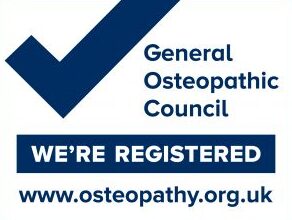
Being young, fit and healthy it’s easy to forget that others live with chronic pain. It’s easy to go about your life, walking from place to place without feeling pain, participating in whatever activities please you. It usually isn’t until a healthy person has a debilitating, acute injury that they begin to understand the struggle many others go through day to day.
Chronic Pain is a highly complex and invisible disability that is poorly understood and usually largely managed with prescription medication.
[author] [author_image timthumb=’on’]https://www.cityosteopathy.com.hk/wp-content/uploads/2015/08/janecropped1.jpg[/author_image] [author_info]Jane is a registerd Osteopath from Australia and has worked as a trainer with various Australian Football Teams and Life Surfing Clubs. She has extensive experience in sports injuries and postural issues.[/author_info] [/author]
What are the common causes of chronic pain?
-
Lower Back Pain
-
Arthritis (primarily Osteoarthritis)
-
Headaches and Migraines
-
Multiple Sclerosis
-
Visceral Conditions
-
Fibromyalgia
Psychological Implications of Chronic Pain
People living with chronic pain are more prone to psychological distress such as depression and anxiety. Chronic pain also puts additional stress on the brain and can cause cognitive issues such as low mood and difficulty with memory and poor concentration. This can in turn decrease quality of life and if coupled with mediocre management can lead to decreased sleep, exhaustion and intensification of pain. Thus chronic pain can lead into a positive feedback loop further worsening symptoms.
For loved ones this can become frustrating, as they attempt to help with no avail. Really the onus is on the individual with pain to help themselves, however motivation can be limited if they are suffering with underlying mental illness; so support and understanding from friends and family can make a difference.
How can you help?
1. Take their pain seriously – everyone’s pain is real to them and you doubting them isn’t helping anyone.
2. Don’t put your expectations of their limitations onto them – just because they could walk to the park yesterday doesn’t mean they can today.
3. Listen to what they are saying and act appropriately – if someone with chronic pain says they need to sit, then they need to sit.
4. Try to be patient and help out where you can – even the smallest gesture can make a difference.
If your loved one is open to getting some help for themselves, Sophrology may be able to help.
Who Are We?City Osteopathy Integrated Health is a multidisciplinary complementary health clinic with a focus in helping the body heal naturally.
We are a team of health professionals from France, Canada, Australia and the United Kingdom.
We offer:
- Acupuncture
- Osteopathy
- Physiotherapy
- Chinese Medicine
- Massage Therapy
- Pilates
- Sophrology



